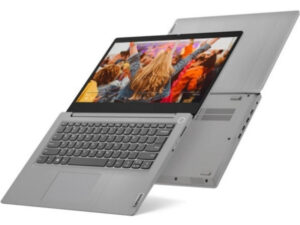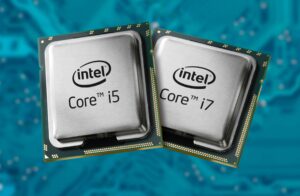
Quality control is the backbone of every successful factory operation, ensuring products meet the required standards. With rapid technological advancements, smart PCs have become integral to quality control systems. These devices are revolutionizing how factories monitor and improve their production lines.
According to MARKETSandMARKETS, “ The artificial intelligence in the manufacturing sector is projected to reach the mark of USD 20.8 billion by 2028.”
This highlights the growing importance of smart laptops in the manufacturing sector, as they serve as essential tools for integrating AI-driven solutions, streamlining operations, and enhancing productivity on the factory floor.
As factories move towards more automated processes, the integration of smart PCs into quality control systems provides an edge that enhances precision, reduces downtime, and ensures consistency across production. The ability to make real-time decisions and swiftly adapt to changing conditions is crucial, and smart PCs make this possible.
Read on to learn how smart PCs improve quality control in factory machines.
1. Streamlined Data Collection and Analysis
One of the key benefits of smart PCs or smart laptops in factory machines is the way they handle data. You know that quality control relies heavily on accurate, real-time data to identify issues and make adjustments.
Smart laptops or PCs are equipped with powerful processors and software that allow to collect vast amounts of data from various machines on the production floor.
- These PCs analyze the data in real time, providing valuable insights into machine performance and product quality.
- With the help of smart PCs, manufacturers can track everything from temperature fluctuations and machine vibrations to product dimensions and material consistency.
This ability to capture and analyze data quickly is critical in ensuring that any potential problems are caught before they impact the entire production line. In turn, this leads to better-quality products and less waste.
2. Real-Time Monitoring and Control
Smart PCs play a significant role in this process by connecting with machines through sensors and other data collection devices. This constant flow of information allows factory managers and operators to detect any deviations from the standard performance metrics instantly.
For instance, a smart laptop can be used to connect to machines via a wireless network and display performance data in real time.
- Operators can access these devices to check the status of production lines, adjust machine settings, or even troubleshoot issues on the spot.
- This prevents delays caused by malfunctions or incorrect settings and helps to keep production on track.
3. Preventive Maintenance for Reduced Downtime
Downtime is one of the biggest costs in manufacturing, and preventing it is crucial for maintaining productivity. Smart PCs enhance quality control by providing predictive insights into when a machine may need maintenance.
- They can identify early indicators of wear and tear, like increased vibration or temperature irregularities, by analyzing machine data.
- Instead of waiting for a machine to break down completely, manufacturers can use smart PCs to schedule preventive maintenance.
- Regular maintenance ensures that factory machines operate at their best, helping to maintain product quality over time.
In essence, smart PCs help keep machines in optimal condition, reducing the chance of unplanned downtime and quality control problems.
4. Enhanced Decision-Making with Real-Time Data
The integration of smart PCs in quality control systems doesn’t just improve machine performance; it also enhances decision-making across the factory floor.
According to the reports of Keymakr “80% of corporate executives believe that generative AI will transform the organizational structure.”
With all relevant data displayed in real time on a smart laptop, decision-makers have immediate access to key performance indicators (KPIs) and can make informed choices based on the latest data.
Smart PCs can aggregate data from various production lines, providing an overview of how each section of the factory is performing. Managers can use this data to identify trends, spot potential issues, and allocate resources more efficiently.
This allows for quicker responses to any challenges that arise, whether it’s a minor quality issue or a more significant machine malfunction.
5. Facilitating Communication Across Teams
Communication is another area where smart PCs make a big impact in quality control. With the ability to integrate into factory-wide communication systems, these devices help ensure that everyone on the production floor is on the same page.
Whether it’s maintenance teams, operators, or quality control specialists, they enable seamless communication and collaboration.
For example, if a quality control issue arises, the smart PC can instantly send an alert to the relevant team members, allowing them to take immediate action. This direct line of communication helps to avoid delays and ensures that quality control issues are addressed as quickly as possible.
6. Improving Overall Efficiency and Reducing Errors
Smart PCs are also improving overall factory efficiency by reducing human error. Quality control can often be influenced by human oversight, especially when large volumes of products are being produced. However, with smart PCs in place, much of the manual data entry and error-prone tasks are automated.
For example, machines connected to smart PCs can automatically report their status and product quality, removing the need for operators to manually inspect every item. This speeds up the quality control process and ensures that fewer mistakes are made.
7. Integration with Advanced Quality Control Technologies
Smart PCs are not just standalone devices; they can integrate with other advanced technologies to further enhance quality control systems.
For example, many factories use machine learning algorithms and artificial intelligence (AI) to predict and optimize machine performance. Smart PCs provide the necessary computing power to run these complex algorithms and make use of the insights generated.
When paired with AI, smart PCs can help factories detect subtle patterns in data that might otherwise go unnoticed.
For instance, an AI system running on a smart laptop could identify a potential quality issue that may not be immediately obvious, such as an increasing trend in small defects. This early detection allows the factory to take proactive measures before the problem worsens.
Conclusion
Smart PCs are transforming how factories approach quality control, offering real-time data analysis, preventive maintenance, and enhanced decision-making capabilities.
With the ability to integrate advanced technologies and streamline communication across teams, these devices play a vital role in ensuring that manufacturing processes are efficient and error-free.
Utilizing smart PCs, factories can improve product quality, cut down on downtime, and maintain their competitive edge in a market that is becoming more and more crowded.






